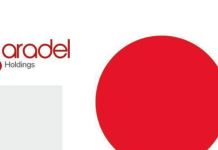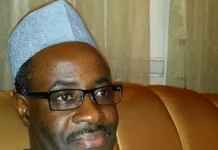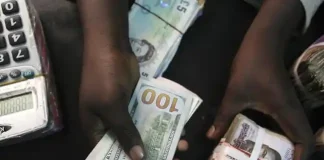The African Development Bank Group (AfDB) has approved $200million to boost Nigeria’s electrification project, particularly the off-grid expansion being implemented by the Rural Electrification Agency (REA).
A source in the bank, who did not want his name in print because he was not authorised to speak, said the project is expected to provide electricity to households, medium, small and micro enterprises (MSMEs) and public institutions in a least-cost and timely manner.
According to him, the project has four components which include solar hybrid mini grids for rural economic development, stand-alone solar systems for homes and enterprises, energising education as well as technical assistance.
The proposed project, he said, will support the Federal Government’s aim of increasing electricity access as defined in the national development agenda, adding that in order to meet the government’s targets, the country will have to embrace both on-grid and off-grid expansion.
Beneficiaries of the project include households, MSMEs, students, faculty workers and patients at Federal universities and teaching hospitals throughout the country.
The AfDB, the source, is also supporting some independent power projects (IPPs), which are in the pipeline, but is most concerned with proving finance or guarantee instrument to off-grid power projects.
The source said: “We also have some gas related projects we are looking at financing. We know that in the power sector we need gas as feed stock and we know companies that have interest in bringing gas to the market. Then we are looking at financing them to ensure that they are able to bring that gas to the market to the advantage of the electricity sector and others sectors.
“The Nigerian electrification project is soon going to be launched. We have already started preparatory activities on the solar projects. We are in discussions with the Nigerian Bulk Electricity Trading (NBET), so once these discussions are completed, may be by the end of the year and the financing structure is put in place, we can start construction as early as next year.
“Of course, a lot of projects in the power sector have long gestation period, so even if you give them money now, in the next six months, they cannot finish the projects. There is a time lag that will be experienced in these projects.”
Meanwhile, the source added that part of the reasons the generation companies (GenCos) were not getting their payments from the NBET was because customers were not paying for their electricity bills as they should. He absolved NBET from all blames. He, however, admitted that the GenCos were being owed huge sums of money by the NBET in terms of the purchasing agreements.
“It’s not the job of NBET to go to consumers’ houses and start telling them to stop bypassing meters, that’s the job of the distribution companies (DisCos).
“The DisCos are responsible for installing your meter and making sure they collect the money from you and when they collect the money they now pay to NBET.
“But if the DisCos don’t collect the money from you, what are they going to give to NBET? And even if they collect the money assuming you owe them a certain amount and they decided to give only part of it to NBET, it is still the DisCos that should be held responsible,” he said.
To him, NBET is not structured to go and start collecting money on the streets, adding that they have the plan to give invoice to the DisCos including Ikeja, Eko and Abuja to pay.
“One or two people out there whether they are relatives or friends are bypassing their meters, so if someone is bypassing his/her meter, that means that he or she is consuming power that was sent from the GenCos, but nobody is paying for that power. “











